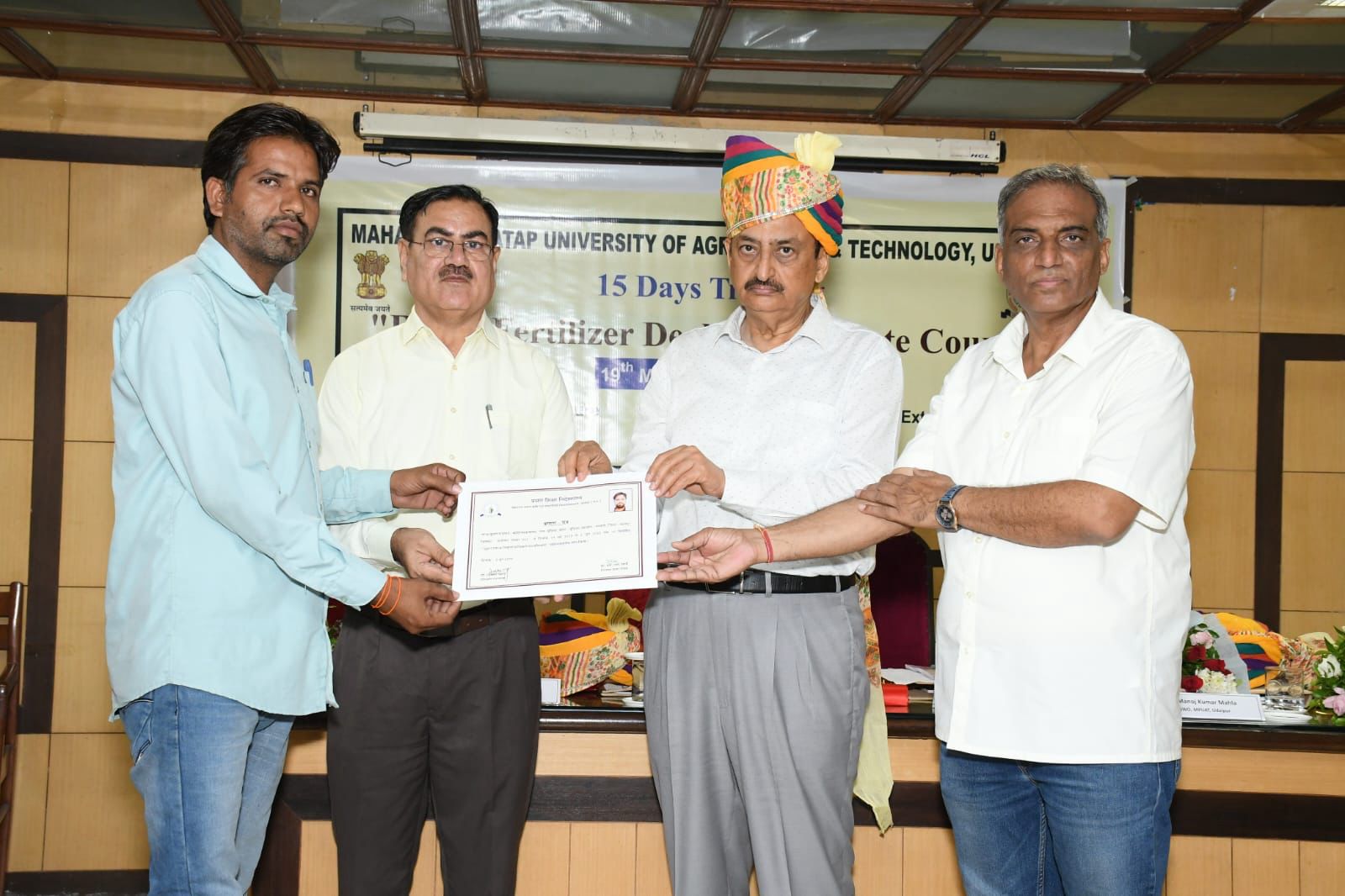
Udaipur : As agricultural land continues to shrink and India's population crosses 1.4 billion, it becomes imperative to maintain and enhance agricultural productivity. Emphasizing this, Dr. Ajit Kumar Karnataka, Vice Chancellor of Maharana Pratap University of Agriculture and Technology (MPUAT), Udaipur, stated that now is the time for research to reach the fields, and scientists must engage directly with farmers so that advanced technologies can be promptly adopted.
Dr. Karnataka was addressing the valedictory session of a 15-day Retail Fertilizer Dealer Authorization Training program organized by the Directorate of Extension Education, MPUAT. The training saw the participation of 51 fertilizer retailers from Udaipur, Rajsamand, Chittorgarh, Dungarpur, Banswara, and Salumber, including 7 women participants.
He highlighted that becoming a successful retailer requires comprehensive knowledge, which is only possible through well-structured and quality training, a regular initiative of MPUAT. He expressed concern that most people still associate fertilizer only with urea, despite the availability of several fertilizers containing essential nutrients like Nitrogen (N), Phosphorus (P), and Potash (K). Dr. Karnataka also advised retailers to stock natural farming materials to promote sustainable agricultural practices.
Dr. R.L. Soni, Director of Extension Education, emphasized the importance of the five R's in fertilizer trade: Risk, Relation, Regulatory, Reputation, and Rate. He advised participants to apply these principles in their business to ensure success. He also encouraged direct interaction with farmers to introduce them to modern agricultural technologies and assist in increasing their income. Dr. Soni discussed the importance of balanced fertilizer use, soil testing, Soil Health Cards, nutrient management, organic and bio-farming, and their respective benefits.
Dr. Manoj Mehla, Dean of Student Welfare and guest of honor, provided insights into improving fertilizer use efficiency, promoting sustainable farming, and crop diversification through integrated farming systems.
Dr. Latika Vyas, Training Coordinator and Program Conductor, mentioned that the training included theoretical and practical knowledge delivered by university scientists and government agricultural officers. She urged all participants to pass on their learning to the farming community.
During the closing ceremony, certificates and relevant training literature were distributed to all participants by the chief guest. The attendees also shared their experiences and learning outcomes from the training.